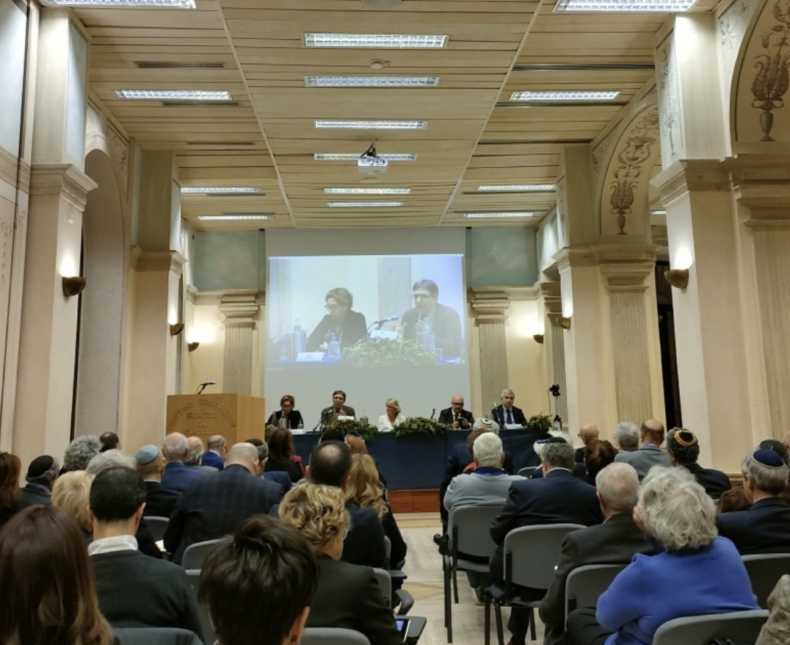UCEI meeting, “Education is key to continuity”

What is the future of Jewish education in Italy? What are the critical points to be aware of, and what are the guidelines for growth and development? These are some of the questions that have characterized the work of the General States of Italian Jewry held in Rome between Sunday and Monday. From the choice of the mission for the schools to the modules for rabbinic training, from higher education courses to the provision of supplementary services: these and other pieces of a large mosaic animated the sessions of the two days of discussion organized by the Union of Communities Italian Jews.
“These are issues of absolute relevance for Italian Jewry. An opportunity to reflect on where we are going and what we are doing” remarked UCEI President Noemi Di Segni in her introductory speech. “Through the red thread of education – she added – these States General allows us an opportunity to understand our role as an institution, as educators, schools, families; as Italian Judaism outstretched in an effort declined both inside and outside our communities”.
 An appreciation in this direction came from the new ambassador of Israel in Italy Alon Bar. “In every city, the first meeting I have is with the representatives of the Jewish community. The Italian one – he said – is a very active community, even in schools and training”. The diplomat, who took office in September, focused on the complexity and articulation of the Israeli system. And on the possibilities “of a constructive contribution” also for the services provided by Italian Jewry.
An appreciation in this direction came from the new ambassador of Israel in Italy Alon Bar. “In every city, the first meeting I have is with the representatives of the Jewish community. The Italian one – he said – is a very active community, even in schools and training”. The diplomat, who took office in September, focused on the complexity and articulation of the Israeli system. And on the possibilities “of a constructive contribution” also for the services provided by Italian Jewry.
Italian Minister of Culture Gennaro Sangiuliano brought the greetings of the institutions. “Jewish culture is not separate from Italian culture, but it is one of its pillars. It is something closely connected and fundamental” he pointed out. In this regard, he then announced, “I will give my utmost support so that Jewish culture may have an important place in the country”.
Speeches by the director of UCEI Education and Culture area, Rabbi Roberto Della Rocca, by the councilor for educational policies of the institution Livia Ottolenghi and by the director of the newspaper La Repubblica Maurizio Molinari stimulated the debate, articulated through four thematic sessions and related workshops.
Education as preservation and education to build future and continuity: this was one of the concepts emphasized by Rav Della Rocca. In addition to strengthening a network, the goal is of active transmission “not based exclusively on the knowledge of notions”. Otherwise, the risk is of “becoming banal and irrelevant”. “Not to leave anyone behind” is the way indicated by councilor Ottolenghi.
In his return to the plenary, the Council spoke of “constructive indications” received from the participants: a heritage now available to professionals and managers.
During the discussion, among other things, it emerged “that the UCEI is making important investments for schools: also through resources such as the Zeraim website dedicated to Jewish education, which however is still used too little”. Another critical issue that emerged, again about schools, is “The conflictual relationship with families”. That of young people and their reality is a world undergoing a strong transformation, remarked the UCEI councilor for youth policies Simone Mortara.
“We must deal with a generation that is less interactive than in the past, but is still creative. That’s a fact we cannot ignore”, said Mortara. Hence, in a moment of crisis for formal institutions, there’s the need to rethink an offer that, “should not follow standard models but must renew itself in its declination”. As for the identity trend, the feeling “is that there is a positive and structured aggregation around certain educational, religious and social moments”. However, “for the so-called ‘secular’ world we do not see the same result, even numerically”.
